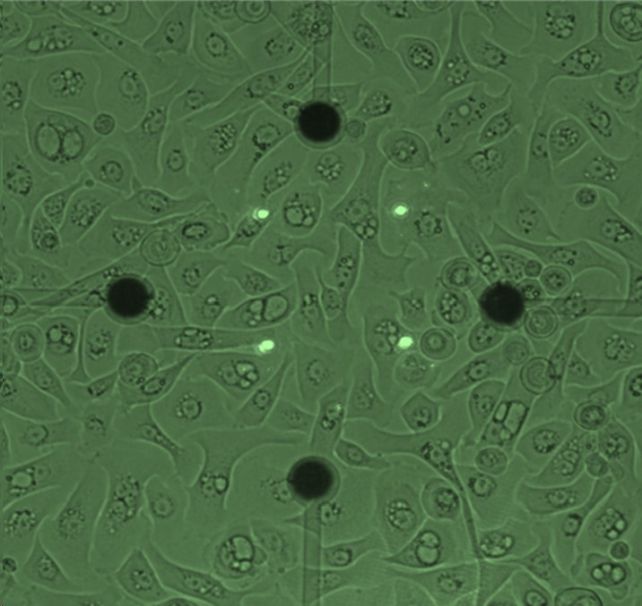Now, US researchers have discovered that the epithelial cells that line our skin and organs are able to signal the same way to communicate peril. They just use a long, slow ‘scream’, rather than the rapid-fire communication of neurons.
It’s a huge surprise, since these cells had been previously considered ‘mute’ – and may open new avenues for electrical medical devices to accelerate healing.
“Epithelial cells do things that no one has ever thought to look for,” says polymath Steve Granick of the University of Massachusetts Amherst. “When injured, they ‘scream’ to their neighbors, slowly, persistently, and over surprising distances. It’s like a nerve’s impulse, but 1,000 times slower.”
The body’s communication networks keep it functioning. You’ll whip your hand off a hot surface tout de suite without even thinking about it; that’s your nervous system at work. Your heart’s pumping action is regulated via electrical signals; the discovery of this enabled the invention of the artificial pacemaker.

